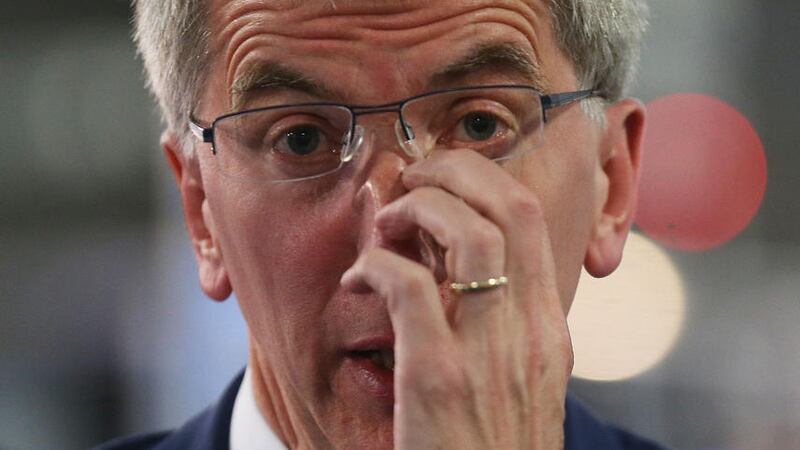THREE months ago we were wondering if Stormont could survive without an agreed justice minister. The loss of a finance minister, while not directly comparable, would definitely have seemed like a crisis.
Yet here we are, with a DUP-dominated committee asking Sinn Féin finance minister Máirtín Ó Muilleoir to step aside, and it is regarded as little more than light entertainment.
It seems unlikely that Ó Muilleoir will stand down while the witness coaching scandal is investigated, not least because Stormont inquiries can take years. That still leaves him facing months of grief in the assembly, not just from the DUP but from opposition parties trying to drive a wedge through the executive.
The lack of a sense of crisis around this is tied up with the details of the Nama and witness coaching stories. There is also the obvious desire of Sinn Féin and the DUP to make their Fresh Start deal work. But what really makes this all a non-event is the collapse in the stature of Ó Muilleoir’s office. In the space of three months, finance has gone from being seen as the queen on Stormont’s chessboard to being played like a pawn.
In retrospect, the recent prominence of the post of finance minister is what has been unusual. For the first three years of its existence it was held by the SDLP, because the larger UUP did not think it was important enough to pick first. Mark Durkan was the initial minister, from 1999 to 2001, when he became deputy first minister. That might have created an impression of finance as the last stepping stone before the top, had Durkan not replaced himself with Sean Farren, who was clearly looking forward to a well-earned retirement.
Farren was credited with a solid performance but it was very much in the spirit of his job’s full title - Minister of Finance and Personnel. Departmental budgets are mostly swallowed up by public sector salaries and the SDLP did nothing to change the idea of finance ministers as glorified payroll clerks.
Stormont was suspended in 2002. When devolution returned five years later, Peter Robinson ensured finance was the DUP’s first pick and inserted himself as finance minister. This was when perceptions of the role were transformed. Robinson portrayed himself as a chancellor of the exchequer, serving under Ian Paisley as a prime minister, with a DUP team thus allocating Stormont’s budget. This illusion could only be conjured up because Paisley was clearly heading for retirement. In reality, budgets have to be agreed between the DUP and Sinn FÉin first ministers, before being handed to finance to implement.
Robinson proved this in 2008 when he became first minister, Nigel Dodds became finance minister and nothing else changed.
Conclusive proof followed in 2009 when Dodds was replaced by Sammy Wilson, who held finance for a record four years, despite the DUP openly regarding him as a comic turn. Yet the chancellor-prime minister paradigm suited Robinson, who maintained it through the 2011 Stormont election, picking finance first again and keeping Wilson in place. He bolstered the role in 2013 by awarding it to rising star Simon Hamilton and bolstered it again in the chaos of last year, when he gave it Arlene Foster and shunted Hamilton to health, thereby very publicly ranking bookkeeping before hospitals.
But by that point, a group around Foster and Hamilton were looking to the future and asking the unthinkable question - why was the party fetishing the finance job?
Foster’s ‘leadership tour’ last December and this January took her to a large number of public events and doorsteps, where problems with the school system were repeatedly raised. That clinched it for the DUP - it decided to pick education first after this May’s election and let Sinn FÉin have finance, almost certainly by prior agreement. The illusion was shattered, although so many advance signals had been sent to the media that it would be more accurate to say it was safely dissipated.
With wonderful and mainly coincidental timing, Fresh Start changed the name of the Department of Finance and Personnel to simply the Department of Finance. It sounds more important, but in the new era of the two-party executive it has never been less so. During this Stormont term, the finance minister may acquire serious tax powers but using them will be even more of a joint decision than spending.
The best reason for Ó Muilleoir not to stand aside is that few would notice he had gone.
newton@irishnews.com









